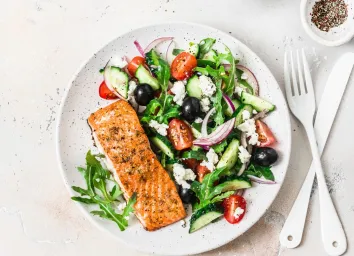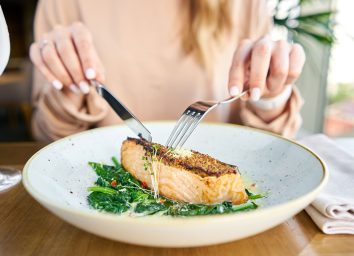The #1 Best Eating Habit for Your Liver, Says Dietitian
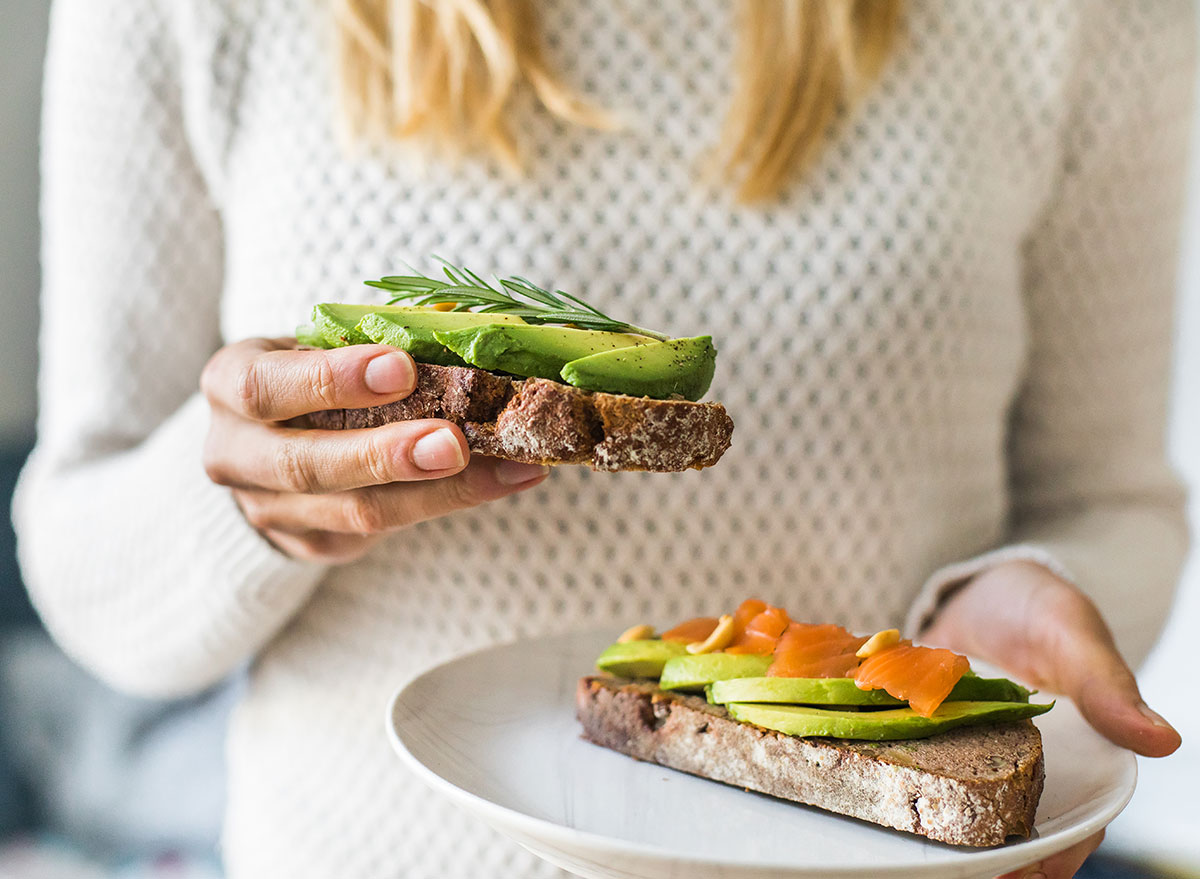
Your liver is a real powerhouse in your digestive system. Responsible for leading roles in absorption, digestion, metabolism, and detoxification, the liver needs to be in tip-top shape to keep you healthy. One of the most common medical issues that arise when the liver is comprised is non-alcoholic fatty liver disease (NAFLD), which can be a result of uncontrolled type 2 diabetes, dyslipidemia, metabolic syndrome, and obesity. Your eating habits can help prevent or delay the onset of NAFLD and other liver issues. One part of protection is getting the correct amounts of healthy fats in your diet.
Dietary fats fall into two major categories: saturated and unsaturated. Unsaturated fats include polyunsaturated fats (like omega-3 fatty acids) and monounsaturated fats. Polyunsaturated and monounsaturated fats work hard to absorb and transport vitamins, decrease inflammation, reduce the risk of heart disease, regulate blood clotting, and assist with hormone regulation. We need them and they need us! Most of us should aim for 25 to 58 grams of unsaturated fat per day and no more than 20 grams of saturated fat per day.
Here are some wholesome foods which will help you achieve the ideal fat intake for your liver health in the short-term and long-term include. Then, for more healthy tips, be sure to read up on The #1 Best Juice to Drink Every Day, Says Science.
Olive oil
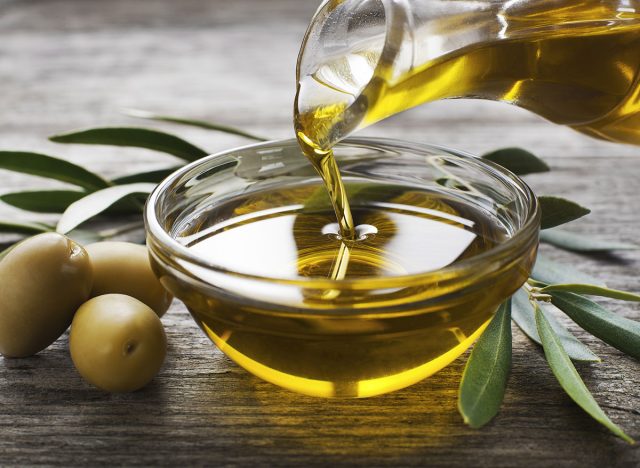
Often regarded as the secret potion in the renowned Mediterranean Diet, olive oil is a terrific household kitchen staple in cooking and oil-based sauce/dressing bases. Keep in mind that just a tablespoon of olive oil contains 14 grams of total fat (about 11 grams as monounsaturated fat), so use even this healthy food sparingly!
Nuts
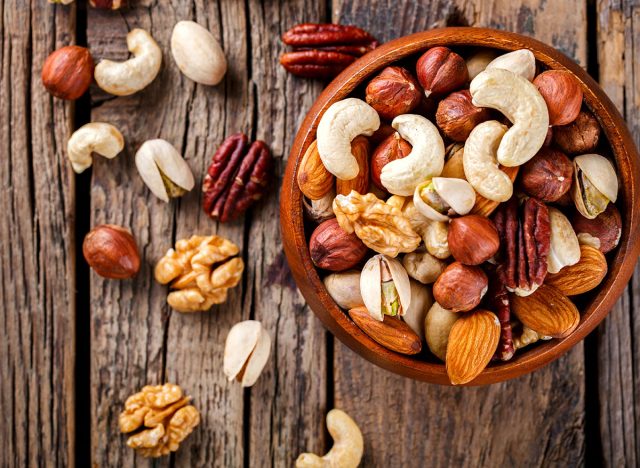
Whether your favorite is almonds, cashews, hazelnuts, walnuts, or pistachios, nuts are a hefty source of unsaturated fats (mostly occurring as monounsaturated) and might offer protection against liver disease. In fact, a 2014 Korean study from the Journal of Gastroenterology and Hepatology found that low intakes of nuts and seeds were associated with a significantly higher risk for developing NAFLD.
Fish
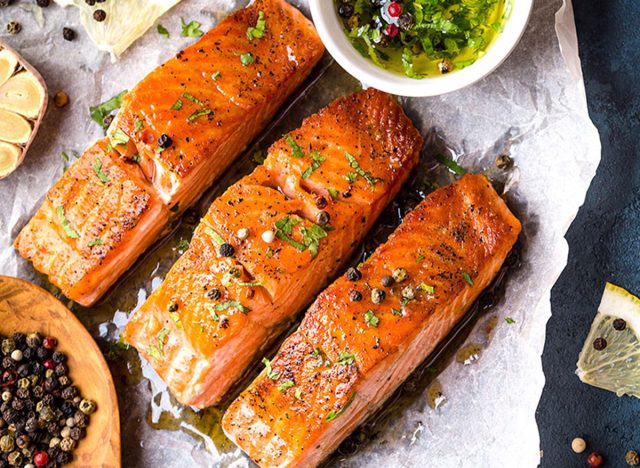
Oily fish contains a greater concentration of omega-3 fatty acids. Look for salmon, anchovies, tuna, or herring, and hold off on the breading. If you don't consume fish, it may be best to get omega-3s from algae supplements. Speak to your doctor or dietitian to learn more.
Flax
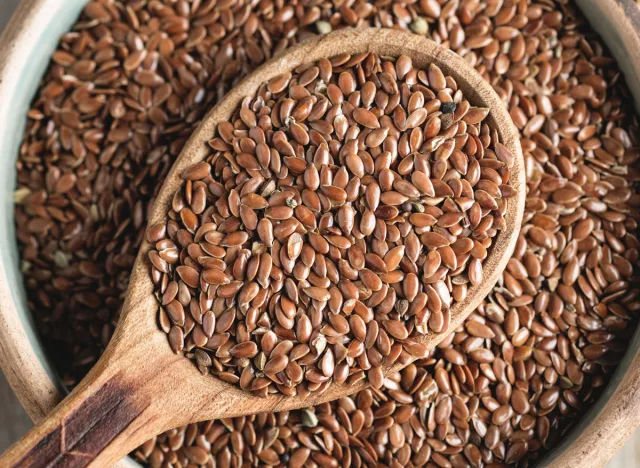
Flax or flaxseed is available as whole, milled, or oil. If you are purchasing whole flaxseed, be sure to grind it before consuming as this unlocks most of flaxseed's benefits! Add it to dough or batter or sprinkle it on cereal or yogurt.
Avocado
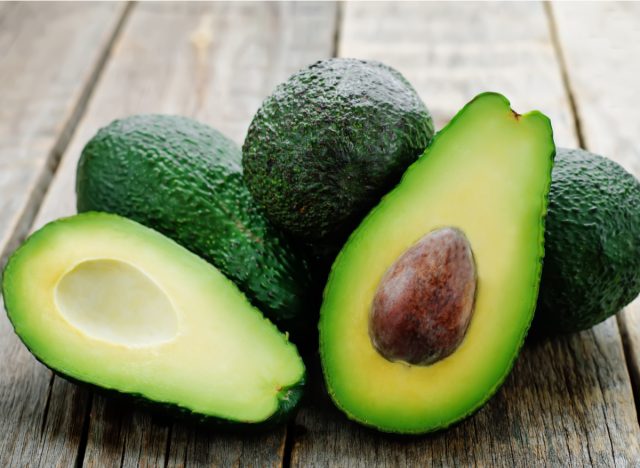
This fruit probably doesn't need much convincing to make an appearance on your plate, but is a dynamite way to get in more healthy fat. One avocado contains about 240 calories, so just be sure to split it in two with a friend to keep your weight in check.


